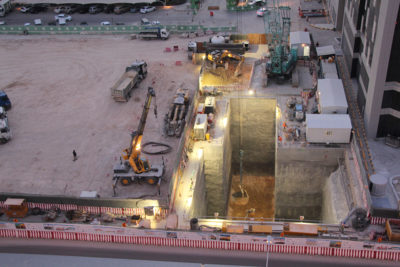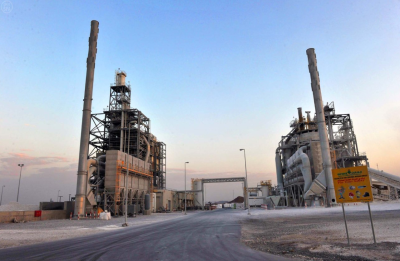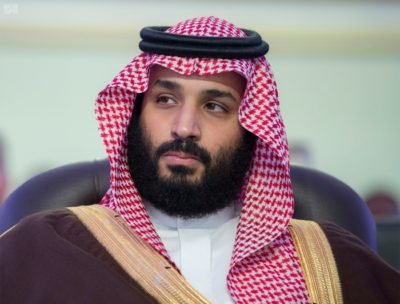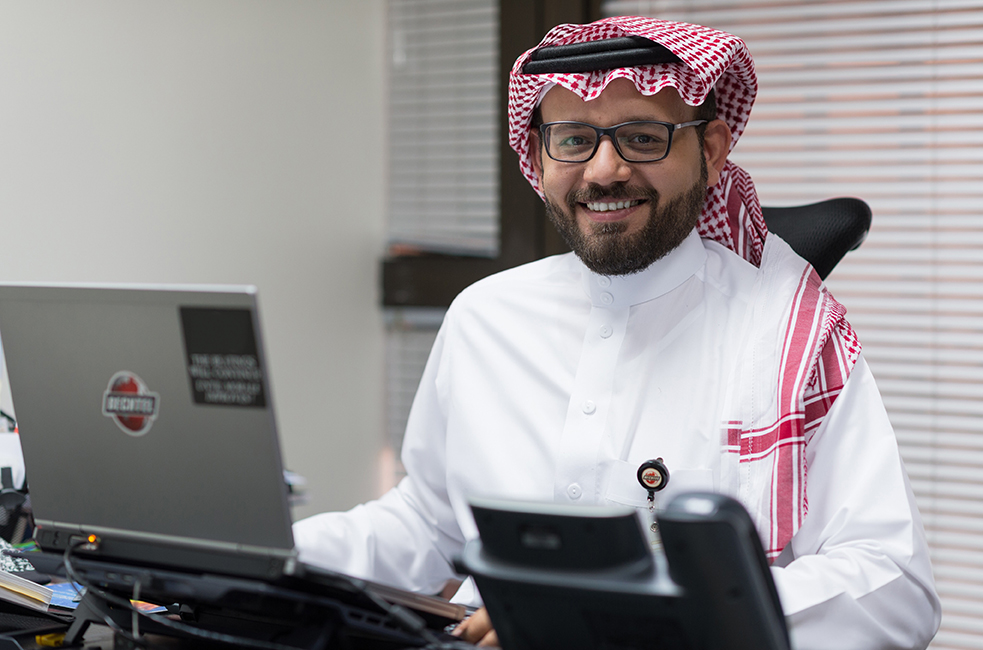San Francisco-based Bechtel is one of the largest engineering, construction, and project management companies in the world, and it’s been doing business in Saudi Arabia for 75 years. Following the announcement of Saudi Arabia’s Vision 2030 economic and social reform plan, the company hired its first Saudi national as country head of its operations in the Kingdom in 2016.
Ahead of Saudi Arabia’s Crown Prince Mohammed bin Salman’s arrival to the U.S. this week, hard-working millennial engineer Abdulrahman Al-Ghabban agreed to speak exclusively with SUSTG about Bechtel’s current activities and ambitions in Saudi Arabia, the Riyadh metro project, Bechtel’s mining aspirations, and more. He also discusses what it means to him as a young Saudi to play a role in a dynamic and evolving Saudi business landscape.
***
Q. Tell me about Bechtel’s strategy in a Saudi Arabia looking to change itself. There’s a new way of doing business in the Kingdom. What are Bechtel’s big plans for the Saudi market in the coming decade?
AG: Well, this year we’re celebrating an important anniversary of doing business in Saudi Arabia. We’ve been privileged with 75 years of active partnership with the Saudi government and its people, working on transformative projects from large oil and gas facilities to airports and other critical infrastructure. Currently, we are working on lines 1 and 2 of the six-line Riyadh Metro and providing program management services at Jubail Industrial City, the largest civil engineering project in the world.
The Kingdom’s Vision 2030 is a great framework for the country and its people in the coming decade, and we see ourselves as partners in its execution. Bechtel’s work with the National Project Management Organization (Mashroat) to strengthen its administration and with the Riyadh College of Technology to strengthen the Kingdom’s professional workforce are part of that partnership and continue our legacy in the country. We are looking forward to seeing numerous projects and initiatives bring the Vision to reality.

The Riyadh metro under construction in 2017.
Q. Bechtel is currently working on Lines 1 and 2 of the Riyadh Metro project. You live in Riyadh now. I’m curious as to how you think the metro will change the city and life for those who live in and visit the Saudi capital?
AG: As a Saudi, I see the metro as an important part of the exciting times ahead of us framed by the Vision 2030. The Riyadh Metro is a landmark project for the country that will significantly improve mobility and reduce carbon emissions and congestion in the city. It is also critical for future economic development. The project is creating job opportunities during construction and into the future. Just look at construction of other large metro systems we’ve been a part of – London’s Crossrail, Washington DC’s Metrorail, and Toronto’s Subway, for example – and you can see the impact such public transportation projects have on regions and nations. Our team is excited to see the same here in Saudi Arabia.
Q. The National Project Management Organisation (NPMO) (aka “Mashroat”) was started last year to “contribute in upgrading the quality of project execution in public entities,” and Bechtel signed a contract to support setting up and operating the NPMO. The ultimate goal is to achieve efficiency in public infrastructure programs. Is the NPMO already working toward this goal, and how will success be measured with this program?
AG: We have finalized the first phase of the partnership with NPMO, and we are now engaging with government agencies to put projects to work. In partnership with NPMO, we put in place metrics of success around capital efficiency and training of local talent, all within the framework of the Vision 2030.
By the way, you’ve probably noted how I keep mentioning the Vision 2030 plan. It is hard to overstate how the Vision is the absolute top priority for the Saudi government, and it reaches all parts of the Saudi economy and society. The government is committed to seeing it all the way through to execution, and frankly, it’s really exciting and an honor to help play a role in supporting it.
Q. I’m glad you mentioned that, because my next question is actually about a key part of Vision 2030, localizing content. Ultimately, that makes bidding and winning on projects tougher for foreign companies like Bechtel and others that have been winning contacts in the past. Are you concerned that winning new projects and contracts will be harder going forward?
AG: No. The reality is that the Kingdom is already meeting some targets in creating local industry, and this is definitely a good thing for Saudi Arabia because it in turn creates a strong and competitive market for all. More competition is needed in Saudi Arabia because it drives progress and innovation, and this is what Vision 2030 calls for – so we definitely welcome it and work to support it day in, day out.
Q. Another key to the success of Vision 2030 is education and a future Saudi workforce. Bechtel recently launched a graduate training program to train and hire up to 75 students from the Riyadh College of Technology, who are pursuing careers in civil engineering, architecture, or survey technology. The first students began in 2017. Why is this program a priority for Bechtel?
AG: The partnership with the Riyadh College of Technology is first-of-a-kind program in the Kingdom and other companies seem to be looking at it as a model. I can tell you that nothing makes me prouder than meeting one of the program graduates in Bechtel offices, working diligently on making the Vision 2030 a reality. More than 50% of the students in the program are Bechtel’s full-time employees today, and I think that’s awesome. Bottom line is that training programs like the one developed with the Riyadh College of Technology are an important part of what we do because its beneficial to both the company’s human capital but also the country’s future workforce.
Q. I’m quoting from an interview you gave last year to The National: “Mining and metals is something that is of extreme interest to us…And we believe mining and metals is [an] untapped sector here in Saudi.” Bechtel has already completed several major mining and minerals projects in the Kingdom and around the world.

Saudi Arabia remains “a key focus for our mining and metals business.”
The company delivered a $4bn aluminium refinery at Ras Al Khair Industrial City in the eastern part of Saudi Arabia. What is on the horizon for Bechtel in the mining sector?
AG: Well, we were also overseeing construction work at the Waad Al Shamal Industrial City project near the Kingdom’s border with Jordan, where a phosphate mining project is under way. Last month, Saudi Arabia Mining Company, Ma’aden, announced it had begun initial production of phosphate at the $7.5bn city complex, and that it will gradually ramp up production over the coming months.
Saudi Arabia remains a key focus for our mining and metals business because of the Kingdom’s abundant mineral wealth and established infrastructure. Our growing aluminum, phosphate and base metals businesses in the country make the future promising for us. Our teams not only offer a breadth of expertise in mining and metals processing facilities, but can also develop critical infrastructure such as power, rail, ports, water and urban centers that need to be developed in support of the mining sector. Building on our experience throughout the country, we look forward to continued collaboration with Ma’aden and the Government as they continue to expand the mining and metals sector in the Kingdom.

Crown Prince Mohammed bin Salman will visit the U.S. this week.
Q. There’s a tremendous buzz surrounding Crown Prince Mohammed bin Salman’s plan to build a futuristic new city, called NEOM. Your CEO, Brendan Bechtel, said at the Future Investment Initiative conference, where the project was announced, that it will “redefine the scale at which building mega cities are based on…Having to build a world-class city from scratch is an incredible undertaking and it is a big part of why we’re here at the conference.”
Bechtel specializes in realizing “incredible undertakings.” What role does Bechtel hope to play in the NEOM project?
AG: I think of projects like Jubail Industrial City when I think of our history in KSA – working with the government to make their bold vision a reality. NEOM is the project that epitomizes the Vision 2030, setting the course for the future of the country and its people. It also embraces global trends in urban development – resiliency, environmental responsibility, and efficiency. This is a project on unprecedented scale that any company would be proud to be a part of.
Q. My last question is a personal one. There are a lot of fresh faces in Saudi positions in the government and private sector with the Kingdom changing economically and socially at a rapid pace. What does it mean to you to be the first Saudi to hold your position at your company, which has been doing business in the Kingdom for 75 years?
AG: In a way, it means a lot to me, but when I look at Bechtel’s legacy in my country, I feel a tremendous responsibility to build on it. Of course, this is an exciting time for me personally, but more than that, it’s an exciting time for Bechtel, and for my fellow Saudi citizens. We are right at the beginning of one of the most important time periods in my country’s history…Vision 2030 is not just a roadmap, its a challenge to the public and private sector and to the Saudi people to work diligently to bring a prosperous future and diverse, vibrant economy to Saudi Arabia.









